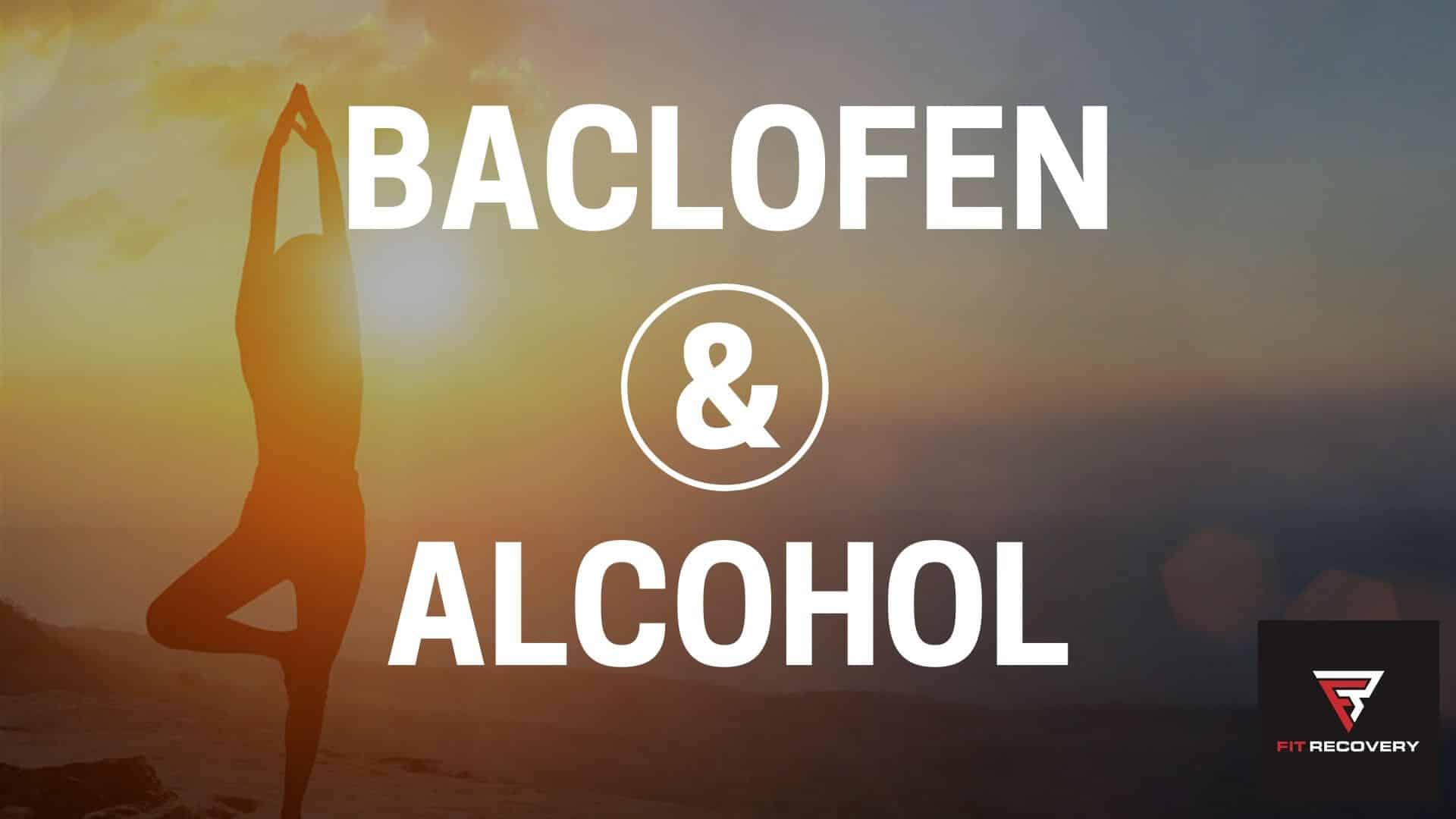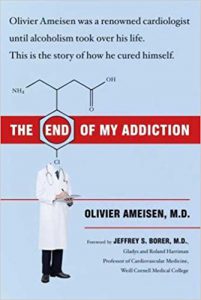This article will explore the relationship between baclofen and alcohol. Baclofen is a nervous system depressant and muscle relaxant that is widely prescribed for spasticity disorders:
- Spinal cord injuries
- Cerebral palsy
- Multiple sclerosis

Yet over the past decade, an increasing number of people have used this medication for withdrawal and cravings.
This phenomenon can be traced to the experience of Dr. Olivier Ameisen, who discovered and studied this in the early 2000s. Dr. Ameisen used high-dose baclofen to transform himself from a fifth-a-day alcoholic into a teetotaler with no cravings.
Can Baclofen Be Taken With Alcohol?
Some research has shown that heavy social drinkers tolerate this medication well in combination with alcohol. One study states that, “Baclofen alone has minimal abuse liability in heavy social drinkers and baclofen is relatively well tolerated and safe when given in combination with intoxicating doses of alcohol.” ()
However, there have been case reports of people experiencing serious side effects from mixing baclofen and alcohol, including seizures. (source) Both act on the same neurotransmitter systems, meaning that side effects from taking either may be more pronounced in combination.
Since this medication may prove useful in ameliorating withdrawal, it’s best to use a minimum effective dosage while attempting to quit drinking rather than combining them. Combining these for recreational purposes is not recommended.
How does baclofen work for withdrawal?
Like alcohol and benzodiazepines, this medication activates GABA receptors in the brain. GABA is an inhibitory neurotransmitter associated with feelings of calm. The difference with this is that it activates GABA-B receptors rather than GABA-A receptors.
- Alcohol – Stimulates GABA-A and GABA-B receptors
- Benzodiazepines – Stimulates mainly GABA-A receptors
- Baclofen – Stimulates mainly GABA-B receptors
It is structurally very similar to phenibut, another GABA-B receptor agonist, which is available in the U.S. as a supplement. The only difference is that it contains a chlorine atom.

What really makes this medication unique is that dosage tolerance does not seem to build up over time to any significant degree.
For example, a patient who responds well to 40 mg per day is likely to obtain the same benefit from the same dosage several years from now.
Most addicts know from experience that the amount of drinking needed to achieve a buzz increases over time. Eventually, the amount of drinking needed just to prevent withdrawal symptoms exceeds the body’s ability to repair itself.
Under a doctor’s supervision, an addict who quits drinking with the help of baclofen can prevent withdrawal symptoms.
If the patient takes this medication for a long period of time or indefinitely, the cravings that torture so many so-called “recovering alcoholics” for years can be extinguished.
Because it has anti-craving effects, some people even find that they can return to moderate drinking while on long-term treatment. Many of them find that they simply don’t feel compelled to drink anymore.

American doctors sometimes refuse to prescribe this for cravings because there have been no large-scale clinical trials showing that it is effective for drunkenness.
These trials do not exist because baclofen is an old generic drug that cannot be patented. While there are several different brands available, there is no incentive for drug companies to spend money on these trials.
In Europe, however, there is a less dismissive attitude.
Over 50,000 people in France are currently taking a high-dose for alcohol disorder treatment.
Like most GABA agonists, this medication can cause dependence. Patients who have successfully used it for alcohol disorders sometimes take it for the rest of their lives. Others use it primarily for withdrawal symptoms and then wean off of it slowly.
Dr. Olivier Ameisen’s Story
The relationship between these substances was a serendipitous discovery made by a doctor looking for ways to extinguish the desire to drink.
Dr. Ameisen was a brilliant French-American cardiologist who had suffered from all of the worst symptoms of addiction. He’d canceled meetings due to withdrawal anxiety, broken bones during blackouts, and suffered from massive withdrawal-related seizures.
Interestingly, Dr. Ameisen tried the Sinclair Method and reported that it did not work for him.

He continued his search for a cure and eventually found that with the right dose of baclofen, he no longer suffered from withdrawal symptoms or cravings.
His most controversial finding was that he could take or leave alcohol if he wanted to.
Dr. Ameisen passed away from a heart attack in 2013.
You can read more about Dr. Ameisen’s story in his book: The End of My Addiction.

Baclofen For Withdrawal
The following information may prove useful if you are considering this route:
- While everyone is different, typically baclofen for withdrawal treatment lasts no longer than a week.
- Since the half-life of this medication is only 4 hours, multiple doses are taken each day.
- Most people begin with 40 mg and then increase by 20 mg per dose as needed.
- 40-80 mg per day (in divided doses) is typically effective to mitigate symptoms.
- For spasticity disorders, up to 300 mg per day is commonly used without problems.
- Only take it under the supervision of a doctor.
Baclofen For Cravings
The long-term use of high-dose baclofen for cravings may cause dependence. Many people find that this is an acceptable trade-off for two reasons:
- After trying everything else, this medication finally ends their cravings and relapses
- This tolerance does not typically increase over time
Dr. Ameisen’s dosing schedule:
- 30 mg per day, adding 20 mg every third day.
- Within 5 weeks, he reached 270 mg per day (in divided doses).
- At 270 mg per day, Dr. Ameisen found he became totally indifferent toward alcohol.
- Once he reached this dose, he maintained it for 12 days, and then gradually cut down to 120 mg per day for a long time.
- He eventually cut his dose to 30-50 mg per day, which he then maintained until the end of his life.
- The optimal dosing strategy may be different for everyone due to biochemical individuality.
- (Click to read the source for the above)
Dangers of Mixing
Despite limited research showing that they are well tolerated together, serious side effects are always possible when combining liquor with prescription medications.
Care should always be taken to avoid drinking while taking medications that target the GABA system. These drugs include baclofen along with benzodiazepines, barbiturates, and sleep medications including Ambien.
Side effects from mixing may include:
- Muscle weakness
- Extreme fatigue
- Confusion
- Loss of balance
- Agitation
What can you not take with Baclofen?
Drugs that should not be mixed with this medication include:
- Opioid pain relievers
- Codeine
- Marijuana
- Benzodiazepines
- Zolpidem (Ambien)
- Muscle relaxants (carisoprodol, cyclobenzaprine)
- Antihistamines (cetirizine, diphenhydramine)
Research Studies

The effectiveness is now well-established in the scientific literature:
- In a two-year study of 100 patients, long-term baclofen treatment caused an effortless decrease of withdrawal and post-acute withdrawal symptoms (source)
- In a 12-week study of 56 alcoholic patients receiving either high-dose baclofen or a placebo, 68% of those given baclofen remained abstinent, compared to 23% on the placebo (source)
- High doses produce a “remarkable state of indifference to alcohol” (source)
- It reduces the severity of relapses and extinguishes cravings through its action on GABA-B receptors (source)
Interestingly, baclofen seems to work best for individuals with the worst cases of alcoholism.
Dr. Ameisen could attest to this, and this finding has even been replicated in these studies with alcoholic rats:
“Data from alcohol self-administration studies suggest that treatment with non-sedative doses of baclofen effectively reduced—beside alcohol consumption—the reinforcing and motivational properties of alcohol. Since operant procedures of alcohol self-administration in rodents possess predictive validity for human craving for alcohol (see Markou et al., 1993), these data bear translational relevance. In terms of translation “from lab bench to bedside,” it may be worth noting that this medication resulted to be more potent and effective in those rats (either selectively bred or made physically dependent on alcohol) seeking and taking larger amounts of alcohol (Walker and Koob, 2007; Maccioni et al., 2012).”
Further Considerations
Here are some other things to consider:
- Because we are all biochemically different, some people do not respond well.
- Even if this medication works for you, make sure you have support and that you repair your body proactively! Nutrient deficiencies can contribute to health problems down the road.
- Regardless of how you quit drinking, it helps to renew your sense of purpose in life.

Conclusion
Like the Sinclair Method, the use of baclofen for alcohol disorders is a little-known but highly effective treatment that our medical establishment has all but hidden from patients.
While not everyone responds well, I believe that greater awareness of this medication can improve recovery odds for chronic relapses and individuals who do not benefit from traditional recovery methods.
There is no one-size-fits-all approach for detox and recovery. Most people who quit drinking are not enlightened about nutrient repair, pharmacological options, or any holistic strategies for improving the quality of life.
Check Fit Recovery’s list of supplements that work best for supporting the brain-body system through recovery.
If you have any questions, please leave them in the comment box below.
___________________________________

Dr. Ken Starr is board-certified in both Addiction Medicine and Emergency Medicine, and diplomate of the American Board of Addiction Medicine. In addition to his work as the Addiction Medicine Director for Fit Recovery, he operates Ken Starr MD Wellness Group in Arroyo Grande, CA. His clinic offers advanced drug and alcohol detox methods, long-term recovery facilitation, and IV nutritional programs including NAD+ therapy.

Author
-
Dr. Ken Starr is board certified in both Addiction Medicine and Emergency Medicine, and diplomate of the American Board of Addiction Medicine. In addition to his work as the Addiction Medicine Director for Fit Recovery, he operates Ken Starr MD Wellness Group in Arroyo Grande, CA. His clinic offers advanced drug and alcohol detox methods, long term recovery facilitation, and IV nutritional programs including NAD+ therapy.
View all posts






Hello , can we take baclofen with cbd ? Have a nice day!
Hi Mehdi, I’m not aware of any interactions between these two compounds! To be sure, you can ask your doctor who prescribed baclofen about it. Good luck to you!
Hey so, I’ve read this 3x. Is Bsclofen for acute alcohol withdrawals (aka interchagable with benzos) is it this a longer term solution for reducing cravings and become “indifferent” to alcohol over time. Thank you~~!! 🙂
Hi Michael, there are doctors who have successfully prescribed baclofen for acute withdrawal, although benzodiazepines are still preferred, especially in severe cases. In Europe, baclofen is often used long-term with the goal of becoming indifferent to alcohol – and this is the method that Dr. Ameisen used himself and promoted.